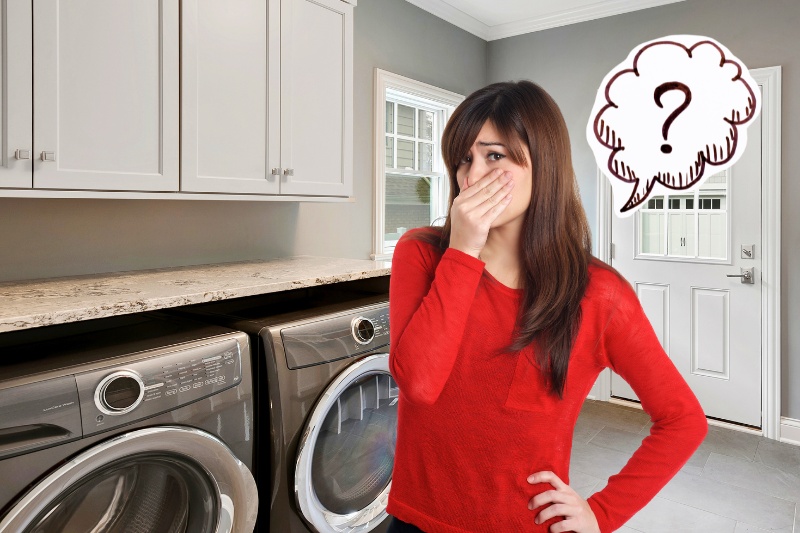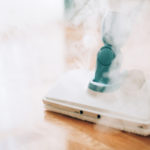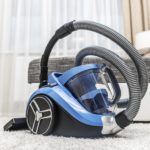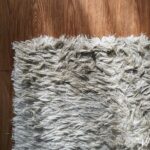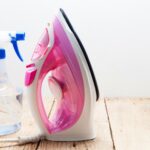If your laundry room has started smelling like sewage, you might understandably be a bit worried. While it might seem like a big issue, it’s usually something you can sort fairly quickly.
That said, there might only be so much you can do on your own before calling in a professional. Before you get on the phone to a plumber, though, read through this article to figure out why your laundry room smells like sewage.
Why Your Laundry Room Smells Like Sewage
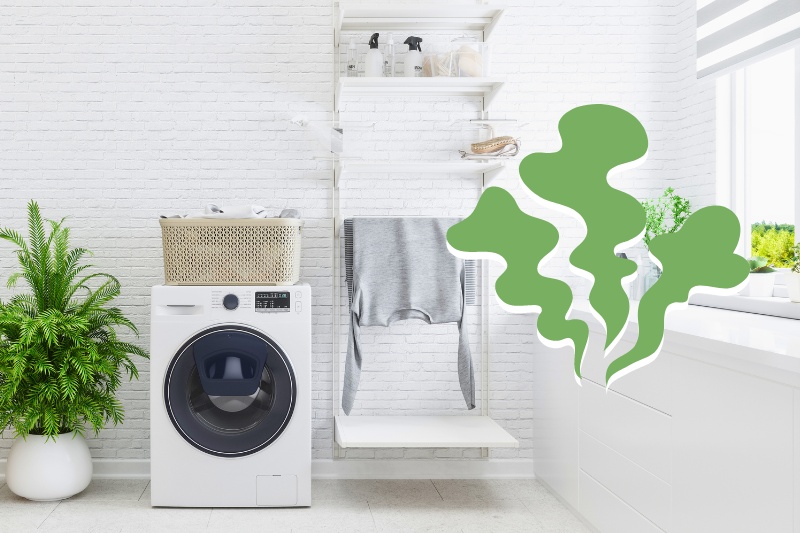
At the most basic level, your laundry room smells like sewage because there’s bacteria somewhere.
However, an important starting point is figuring out what the smell smells like. This might sound obvious, but you’ll want to determine whether you’re smelling mould or a musty aroma, or straight up sewage.
If it’s mould, it’s probably a simple case of cleaning your washing machine. There’s no reason why a dirty washing machine should smell explicitly of sewage (unless you’re cleaning soiled laundry on a cold wash).
A smell of sewage, however, indicates a slightly bigger problem. Sewage smells like egg, cabbage, or poop. You’ll know if it smells of sewage in your laundry room because it’s a pretty unpleasant stink.
So, why can you smell sewage in your laundry room? There are two likely causes:
A clogged pipe
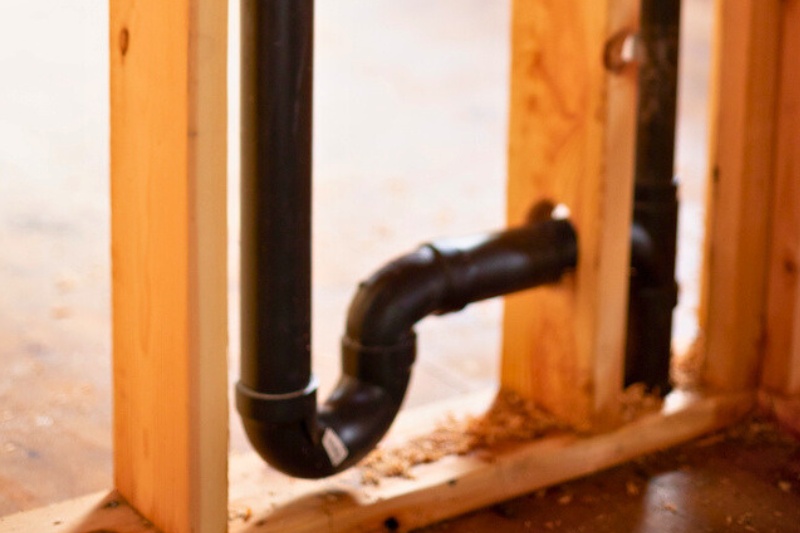
Any pipe that removes water from your home has a p-trap or similar setup.
The p-trap is a small amount of water that creates a vapour barrier between your home and the sewage system. Its purpose is to stop smells from travelling back up the pipes.
If a blockage develops in the p-trap, it can allow odours through. This can happen with washing machines, especially if you use a lot of fabric softener and rarely use hot wash cycles. Granted, it’ll take a long time for a blockage to build up, but it can happen.
A dry p-trap
The other main cause of sewage smells is a dry p-trap. As mentioned, the water in the trap stops smells from coming up the pipe, so if there’s no water, vapours can travel freely.
A p-trap can dry out in hot weather or if there’s excessive air movement for some reason. In short, it’s impacted by any conditions that increase evaporation.
For example, you might not have run your washing machine for a while, so there’s not been any new water entering the trap.
Other causes of sewage smells
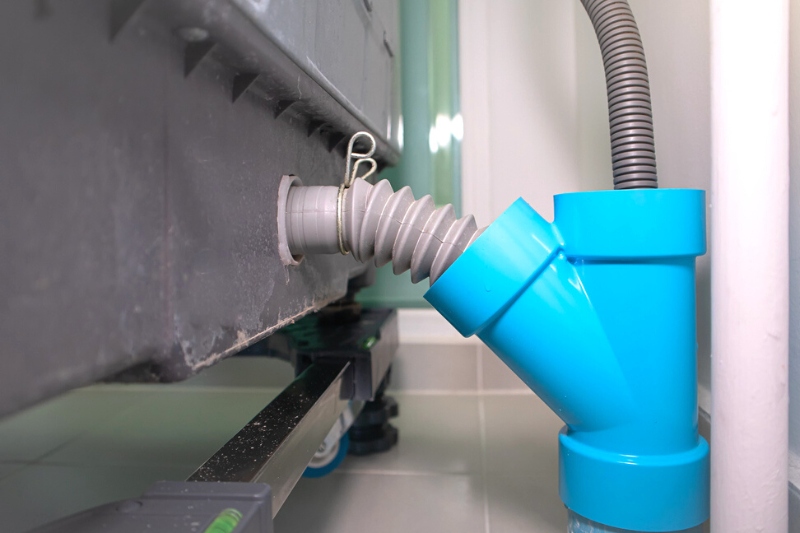
A smelly laundry room could also be caused by leaky pipes. However, for it to smell of sewage, the leak would have to be after the p-trap on the way to the drain.
If this is the case, it could be leaking into the ground, meaning you have a far bigger problem on your hands.
You could also have a clogged vent pipe, which is the vertical pipe sticking out of a wall somewhere. It allows gas to escape the pipe system, which is why you’ll usually find it near a toilet outlet pipe.
However, your washing machine’s drain might not be connected to a vent pipe – it completely depends on how the plumbing in your home is set up.
Generally, it’s only toilets that are linked to vent pipes, but this entirely depends on how your home’s drainage is arranged.
How to Get Rid of Sewage Smell in Laundry Room
You can usually fix a smelly laundry room yourself without having to call in professional help.
Of course, if you try the solutions below and they don’t work, or you’ve identified a bigger problem, make sure you get a plumber in ASAP.
So, what can you do to get rid of a sewage smell? Try the following:
1. Clean your washing machine
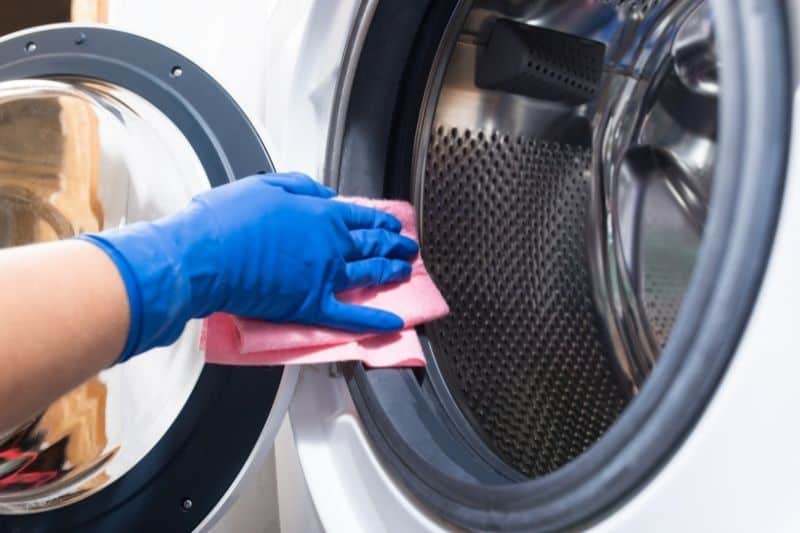
A good place to start is cleaning your washing machine. It’s highly unlikely the sewage smell is coming from the machine itself, but it doesn’t hurt to give it a thorough clean.
Pay attention to the door seal and the rubber around the drum. These are perfect areas for mould growth, which is best dealt with quickly.
You’ll also want to remove and clean the coin trap, which is found at the bottom of the machine.
You should also consider running an empty boil wash with a few scoops of bicarbonate of soda in. This works well as a deodoriser and helps kill bacteria.
2. Unclog the outlet pipe
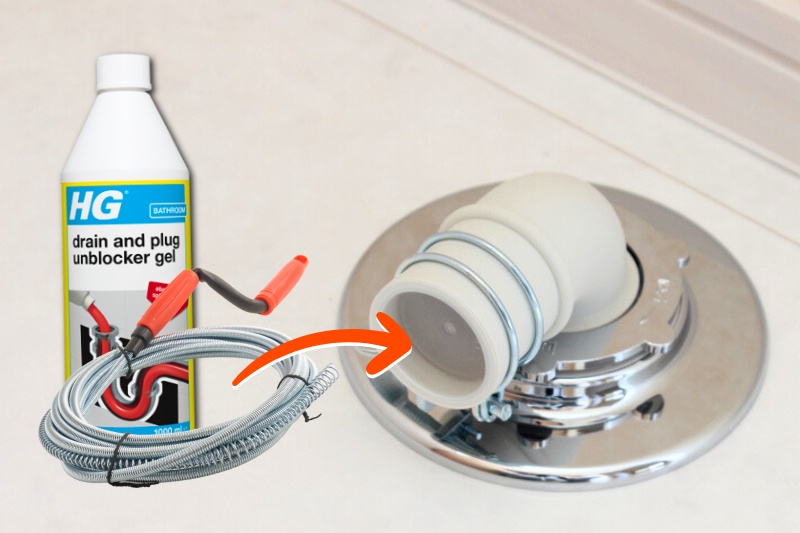
Unclogging the drain pipe shouldn’t be too difficult. Pull the washing machine away from the pipe, removing its hose. You’ll want as much access to the waste pipe as you can get.
Then there are a few options for dealing with a potential blockage:
- A plumbing snake (such as this Thorque Draine Unblocker) is great for removing solid blockages. You simply shove it down the pipe and give it a wiggle.
- Try actual drain unblocker, such as HG Drain and Plug Unblocker. This sort of product will work well if it’s a fat-based obstruction rather than one of dry solids.
- Finally, you could pour a few kettles worth of boiling water down there. A lot of very hot water can make quick work of most drain blockages.
Basically, you’ll want to treat this like any other blocked drain. Give it 24 hours or so before running the washing machine, and you’ll know it’s worked if the sewage smell has gone.
3. Re-hydrate the p-trap
If you’re confident the p-trap is just dry, you can pour some water into the outlet pipe to fix the issue.
However, running the washing machine or trying to unclog the drain will sort this anyway, so it’s a bit pointless to go straight for this option.
When to Call a Plumber
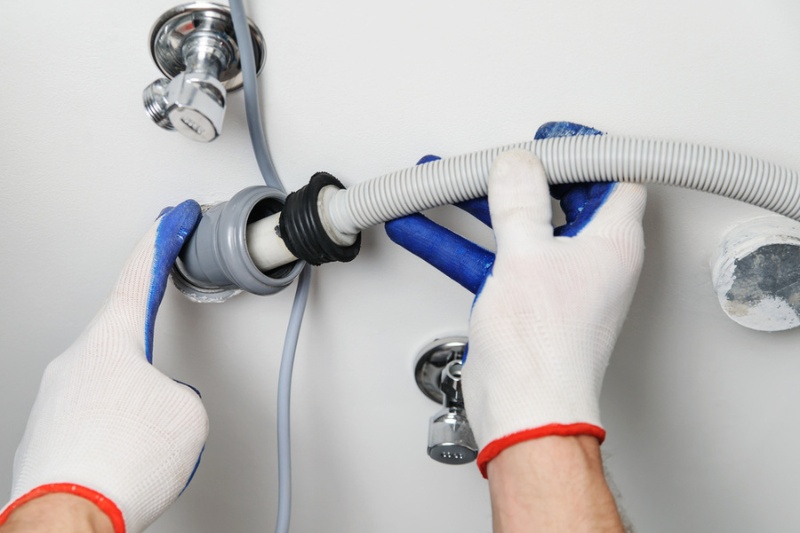
If you try these options and don’t notice a change, the next step will be to call a plumber. It’s likely you’ve either got a major blockage you can’t shift with household products or there’s a bigger issue.
Also, you should avoid messing with the system’s vent pipe if you believe that’s the issue.
Making a potential obstruction worse could force gas to build up elsewhere in the system, resulting in sewage smells elsewhere in your home.
Final Thoughts
Hopefully, this article has given you some tips on how to deal with the sewage smell in your laundry room. It typically comes from a blocked or dry p-trap, which is pretty easy to solve.
However, if you can’t locate the source of the smell, make sure you get a professional in ASAP. Sewage smells that aren’t coming from your washing machine’s outlet pipe could be a sign of a far bigger problem.

Jacob is a writer based in Wales, where he lives with his partner and two dogs. All his work is fuelled by extensive research and buckets of coffee.
